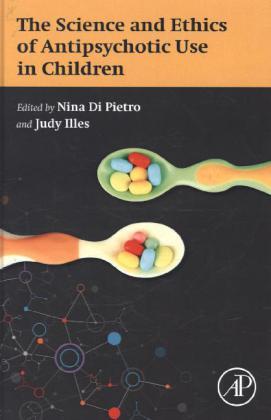The Science and Ethics of Antipsychotic Use in Children
| Verlag | Academic Press |
| Auflage | 2015 |
| Seiten | 228 |
| Format | 15,8 x 1,4 x 23,7 cm |
| Gewicht | 514 g |
| Artikeltyp | Englisches Buch |
| ISBN-10 | 0128000163 |
| EAN | 9780128000168 |
| Bestell-Nr | 12800016EA |
The Science and Ethics of Antipsychotic Use in Children reviews the latest findings for the safety and efficacy of the rapidly rising incidence of antipsychotic use in children and examines tensions that are created by off-label use, both in clinical psychiatric practice and research.
In the past ten years, the number of antipsychotics prescribed to children with psychiatric disorders has skyrocketed. Despite this rapid growth, most medications have been inadequately studied in children for safety or efficacy and many have serious adverse health. Measures are needed to ensure that the health and safety of children are being protected, and debates have emerged over whether or not clinical trials in this population should be conducted.
Inhaltsverzeichnis:
1: A Brief History of the Science and Ethics of Antipsychotics and Off-label Prescribing 2: Pharmacoepidemiology of antipsychotic use in Canadian children and adolescents 3: Do We Know if they Work and if they are Safe: Second Generation Antipsychotics for treatment of Autism Spectrum Disorders and Disruptive Behavior Disorders in Children and Adolescents. 4: Ensuring the safety of children treated with second-generation antipsychotics 5: Pediatric clinical trial activity for antipsychotics and the sharing of results - a complex ethical landscape 6: Pathways to Overmedication and Polypharmacy: Case Examples from Adolescents with Fetal Alcohol Spectrum Disorders 7: Implementing Change in Prescribing Practices 8: Canadian initiatives and recommendations: Safeguarding the health of children and youth receiving off-label treatment with antipsychotics
Rezension:
"...an exceedingly interesting little volume packed with data from a variety of sources.Anyone working with children (physicians, psychologists, social workers) would benefit from reading this book." --PsycCRITIQUES

